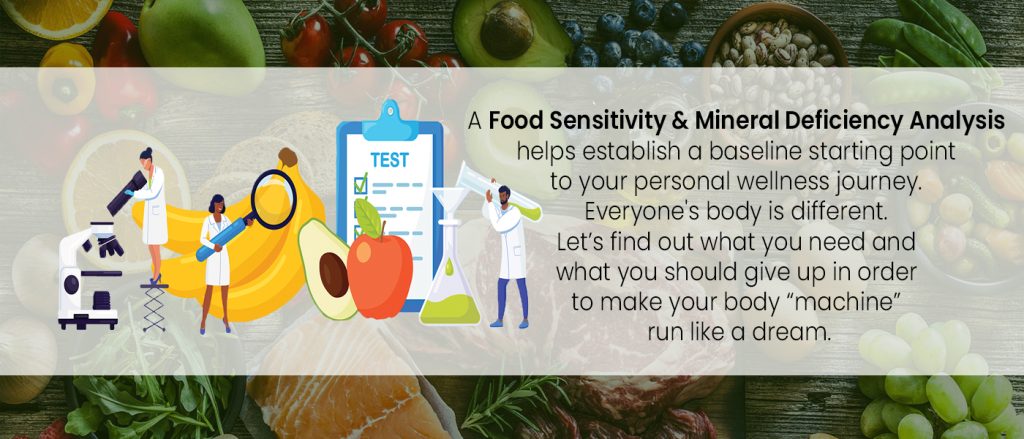Your cart is currently empty!
The Alkaline Diet: Going Beyond Vegan for Optimal Health
I. Introduction
- Explanation of the vegan diet and its popularity
- The need for a diet that goes beyond vegan
II. What is the Alkaline Diet?
- Definition and principles of the Alkaline Diet
- Benefits of the Alkaline Diet for optimal health
III. The Alkaline Diet vs. Vegan Diet
- Comparison of the Alkaline Diet and vegan diet
- Differences in food choices and meal planning
IV. The Alkaline Diet and Dr. Sebi
- Introduction to Dr. Sebi and his teachings
- How the Alkaline Diet aligns with Dr. Sebi’s philosophy
V. Incorporating the Alkaline Diet into Your Lifestyle
- Tips for transitioning to the Alkaline Diet
- Sample meal plan and recipes
VI. Conclusion
- Recap of the benefits of the Alkaline Diet
- Final thoughts on going beyond vegan with the Alkaline Diet
The Alkaline Diet: Going Beyond Vegan for Optimal Health
In recent years, the vegan diet has gained significant popularity due to its ethical, environmental, and health benefits. Many individuals have embraced this plant-based lifestyle to improve their well-being and reduce their impact on the planet. However, there is a growing interest in exploring diets that go beyond veganism to further enhance health and vitality. One such diet is the Alkaline Diet, which focuses on maintaining optimal pH levels in the body. In this article, we will delve into the principles of the Alkaline Diet, compare it to the vegan diet, explore its connection to Dr. Sebi’s teachings, and provide tips on incorporating it into your lifestyle.

II. What is the Alkaline Diet?
The Alkaline Diet is based on the concept that certain foods, when metabolized, leave an acidic or alkaline residue in the body. Proponents of this diet believe that consuming alkaline-forming foods can help maintain a slightly alkaline pH level, which is believed to be beneficial for overall health. The diet primarily consists of fresh fruits, vegetables, legumes, nuts, and seeds, while avoiding or minimizing acid-forming foods such as meat, dairy, refined sugars, and processed foods.
Adherents of the Alkaline Diet claim that by promoting an alkaline state in the body, it can reduce inflammation, improve digestion, boost energy levels, and support weight loss. They argue that an acidic environment in the body can lead to various health issues, including inflammation, weakened immune function, and chronic diseases.
III. The Alkaline Diet vs. Vegan Diet
While the Alkaline Diet shares some similarities with the vegan diet, there are distinct differences in food choices and meal planning. The vegan diet, as most people are familiar with, focuses on excluding all animal products and their by-products. It emphasizes plant-based foods, including fruits, vegetables, whole grains, legumes, and plant-based protein sources like tofu and tempeh.
On the other hand, the Alkaline Diet is not solely limited to plant-based foods for animal welfare but prioritizes alkaline-forming foods within the plant-based spectrum. This means that while a vegan diet can include acidic foods like coffee or processed vegan snacks, the Alkaline Diet aims to minimize these acid-forming foods to maintain a more alkaline state in the body.
IV. The Alkaline Diet and Dr. Sebi
Dr. Sebi was a renowned herbalist and healer who promoted the concept of alkaline-rich diets to support health and well-being. His teachings emphasized the connection between diet and the body’s ability to maintain a balanced pH level. According to Dr. Sebi, an acidic body is a breeding ground for diseases, while an alkaline body creates an environment where illnesses cannot thrive.
The Alkaline Diet aligns closely with Dr. Sebi’s philosophy by emphasizing the consumption of alkaline-forming foods. It encourages individuals to embrace natural, unprocessed plant-based foods that are rich in nutrients and have alkalizing properties. The belief is that by following this dietary approach, one can enhance their overall health and prevent disease.

V. Incorporating the Alkaline Diet into Your Lifestyle
Transitioning to the Alkaline Diet may seem challenging at first, but with a few simple steps, it can become a sustainable and enjoyable way of eating. Here are some tips to help you incorporate the Alkaline Diet into your lifestyle:
- Gradual Transition: Start by gradually increasing the intake of alkaline-forming foods while reducing acidic foods. This allows your body to adjust and makes the transition more manageable.
- Focus on Fresh Produce: Make fruits and vegetables the foundation of your meals. Aim to consume a variety of colorful and nutrient-dense options to ensure a wide range of alkalizing nutrients.
- Hydration is Key: Stay hydrated by drinking plenty of water and incorporating alkaline beverages such as herbal teas and fresh vegetable juices.
- Mindful Meal Planning: Plan your meals to include a balance of alkaline foods, such as leafy greens, cruciferous vegetables, citrus fruits, and plant-based proteins like legumes and chickpea tofu.
- Be Mindful of Acidic Foods: While following the Alkaline Diet, it’s important to be aware of acidic foods that should be limited. These include processed foods, refined sugars, alcohol, and caffeinated beverages.
To help you get started, here’s a sample meal plan for a day on the Alkaline Diet:
- Breakfast: Green smoothie made with kale, cucumber, dandelion, and a splash of lime juice.
- Snack: Sliced alkaline-rich fruits like watermelon and berries.
- Lunch: Quinoa salad with mixed vegetables, avocado, and a lime-tahini dressing.
- Afternoon Snack: Raw walnuts or a homemade green juice.
- Dinner: Baked papaya with roasted green pepper and a side of quinoa.
- Dessert: Alkaline young coconut pudding with mixed berries.
Remember, the Alkaline Diet is not about strict rules or deprivation but rather a shift towards a more alkaline-friendly way of eating that supports your overall well-being.
VI. Conclusion
In conclusion, while the vegan diet has gained significant popularity for its ethical and environmental benefits, the Alkaline Diet offers a unique approach to optimize health beyond veganism. By focusing on alkaline-forming foods, this diet aims to maintain a slightly alkaline pH level in the body, which proponents believe can have numerous health benefits.
While the Alkaline Diet and vegan diet share some similarities, the Alkaline Diet emphasizes the consumption of alkaline-rich foods and aims to minimize acid-forming foods. It aligns with the teachings of Dr. Sebi, who believed in the power of alkaline diets to support overall well-being.
Incorporating the Alkaline Diet into your lifestyle can be a gradual and mindful process. By following tips such as gradually transitioning, focusing on fresh produce, and being mindful of acidic foods, you can make the shift towards a more alkaline-friendly way of eating.
So, if you’re looking to go beyond vegan and explore a diet that focuses on optimal pH balance and overall health, consider
incorporating the Alkaline Diet into your lifestyle. By adopting this approach, you can nourish your body with alkaline-rich foods and potentially experience benefits such as improved digestion, increased energy levels, and enhanced overall well-being.
Remember, before making any significant changes to your diet, it’s always a good idea to consult with a healthcare professional or registered dietitian. They can provide personalized guidance and ensure that the Alkaline Diet is suitable for your specific needs and health goals.
In conclusion, the Alkaline Diet offers a unique perspective on achieving optimal health beyond the vegan diet. By focusing on alkaline-forming foods and minimizing acidic choices, you can support your body’s pH balance and potentially experience a range of health benefits. Whether you’re seeking to enhance your overall well-being, improve digestion, or explore a new dietary approach, the Alkaline Diet provides a pathway to consider. So, take a step towards optimal health and consider incorporating the Alkaline Diet into your lifestyle.
FAQs
- Is the Alkaline Diet suitable for everyone?
- The Alkaline Diet can be beneficial for many individuals, but it’s important to consider individual needs and health conditions. Consulting with a healthcare professional or registered dietitian is recommended before making any significant dietary changes.
- Can I still follow the Alkaline Diet if I’m a vegan?
- Absolutely! The Alkaline Diet can complement a vegan lifestyle. It focuses on the quality of foods rather than strict restrictions, allowing you to prioritize alkaline-forming plant-based options within the vegan framework.
- Are there any potential drawbacks to the Alkaline Diet?
- While the Alkaline Diet promotes healthy food choices, it’s essential to ensure a balanced nutrient intake. Excluding entire food groups or excessively limiting certain foods may lead to nutritional deficiencies. Variety and moderation are key.
- How long does it take to experience the benefits of the Alkaline Diet?
- The timeframe for experiencing the benefits of the Alkaline Diet may vary among individuals. Some people may notice improvements in digestion and energy levels within a few weeks, while others may take longer. Patience and consistency are important.
- Can I still enjoy acidic foods occasionally on the Alkaline Diet?
- Yes, occasional consumption of acidic foods is generally acceptable as long as the majority of your diet consists of alkaline-forming foods. Strive for balance and moderation, and remember that overall dietary patterns matter more than occasional indulgences.
Get Access Now:
Take the next step towards optimal health and explore the benefits of the Alkaline Diet. Embrace alkaline-forming foods, prioritize nutrient-dense choices, and discover how this dietary approach can support your overall well-being. Start your journey today! >> MEAL PREP FOR HEALING
Suggested Alkaline Articled
Science Behind Alkaline Food Prep for Digestive Healing
How to Incorporate Alkaline Recipes in Your Diet for Better Health
Alkaline Recipes for Every Meal: Breakfast, Lunch, Dinner, and Snacks

